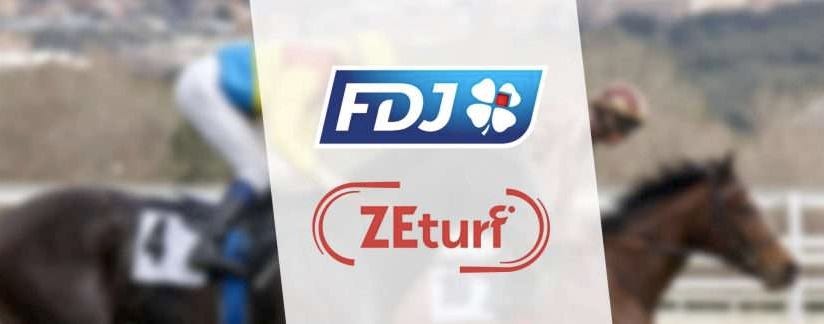Hello, on Gaming & Co today:
Analysis : questions abound following France voting through its web3 gaming-JONUM regulations.
FDJ Q3 : sports betting and digital on the up.
Kindred Group revenues from problem gambling players slightly up.
News in brief.
Subscribe to Gaming & Co !
France and web3 gaming: door into the unknown
The government's new law for web3 gaming players could lead to an imbalance and an unexpected evolution in the sector.
No surprises: The fact that online casino regulation was not included in the law on games monetizable digital objects (JONUM) that was voted through a week ago is no surprise, but the regulatory framework that the government has drawn up for JONUM operators could prove to be an important moment for the French gambling sector.
A rare occasion: For the French gambling sector the JONUM law is one of the rare occasions when new stakeholders have been able to benefit from staunch support from the government.
Criticised by a number of MPs opposed to JONUMs, this support for a vertical that is still very young and, in terms of revenue, far less important than the 'historic' sector (online sportsbooks included), is in fact so rare that it's impossible not to notice.
Web3 gaming isn't big - in France it mainly concerns Sorare, PMU with its subsidiary Stables and, possibly, Socios, although the latter has a different model that isn’t based on NFTs, and France isn't one of the sector's major markets.
If the data from this site is correct, Sorare has generated around $148m in sales so far in 2023, a not insignificant sum, but tiny when compared with the €2.2bn generated by French online operators or the €2.5bn generated by land-based casinos, not to mention the €8.2bn recorded by PMU and FDJ last year.
Imbalance
Philippe Bon, CEO of Casinos de France, points out that the regulation of gambling in France also has a constant objective maintaining the balance of the industry’s different verticals, and that if “the law on JONUMs generates unfair competition (on the part of JONUM players), there will be a risk of litigation".
Bon adds that “attendance at land-based casinos has dropped by 10% post-pandemic" and that on the Internet, online casino players "have become loyal to illegal (online casino) offers" during the periods of confinement.
“There is already an illegal online casino offer, but if JONUMs activity allow them to offer gambling that causes additional revenue shortfalls for land-based casinos this will be a further problem for the sector, as well as for the associated communes."
“Promoting a lighter framework for JONUMs is understandable, but the regulation adopted, when it should be the same that applies to gambling, presents a lot of porosity and may destabilise traditional gambling channels," he adds.
Bad sign: The government will be able to congratulate itself on the JONUM law if it enables France to become a European web3 gaming hub without causing instability in the gaming sector.
But the signs are worrying at the moment; what's more, the new regulations do not solve the massive problem of illegal online casinos already operating in the country.
France - Europe's web3 hub
Legal eagles: The government's plan is to present France as the European hub for web3-crypto-NFT companies. Its aim is to encourage startups and other web3 unicorns to establish themselves in France, thanks in particular to the legal guarantees that the JONUM law will grant them.
While the intent is laudable, there are no guarantees of success. Indeed, being taxed on VAT at 20% is a rather accommodating (but still very ill-defined) measure.
What's more, why would a web3 startup change head office if it can continue operating from the US, Spain or Germany with less regulation and without having to pay taxes on its activities?
Unexpected consequences: In terms of products, the new legislation could also see companies launch 'hybrid' web3 gambling offers for which JONUM regulations were never envisaged.
Whether it's 'real' online casino operators offering the product as NFTs, or social gaming enabling players to buy their chips with crypto-currencies and withdraw winnings in real money, the industry has never been short of ideas for finding regulatory 'workarounds'.
As for the regulator ANJ, many question whether it will have the resources and powers to effectively control all this activity.
Some Gaming & Co contacts also note that current crypto operators of 'real' gambling (ie. sports betting and casino) have been accepting French players for a long time now, and without much legal risk.
"A new, more restrictive regulatory framework that provides lower returns has little to no chance of attracting these groups," says one.
Further reading: In my latest column for CDC Gaming, I cover the lobbying battles that sportsbooks have been waging on DFS operators; and in particular how similar the two products are when it comes to playing them.
FDJ up in Q3, completes ZEturf takeover
Française des Jeux saw its Q3 revenues climb 4% YoY to €1.88bn, with its sports betting business up 9% to €360m.
Its lottery revenues, on the other hand, fell by 1% to €1.4bn, with FDJ saying this was due in part to a lack of Euromillions jackpots.
The group finalised its acquisition of ZEturf and ZEbet during the year, a transaction that makes it number 4 in sports betting in France; and in November will conclude its takeover of Irish lottery Premier Lotteries Ireland for €350m.
FDJ's betting data subsidiary Sporting Solutions will supply its products to CSGO Empire, an esports operator, for an initial period of three years.
As part of the agreement, Sporting Solutions will provide its Odds Services Plus pricing and risk management services to CSGO Empire.
Kindred PG revenues up slightly
Kindred Group has revealed that 3.3% of its turnover came from players showing signs of problem gambling in Q3, compared with 3.1% in Q2.
Unibet’s parent company said the focus was on detection and automated interventions for players showing signs of problem gambling.
The percentage of players with normalised behavior was 86.7% in the quarter, compared with 86.4% in Q2, and that "while the 2023 data indicates that the trend is constant, there is still a long way to go", the group said in its press release.
Kindred will publish its Q3 results on November 29.
News in brief
Bet-at-home, the DACH-focused bookmaker owned by Betclic parent company FL Entertainment, has integrated EveryMatrix's full tech stack after launching its betting platform with OddsMatrix in February. EveryMatrix's turnkey solution includes casino, player account management (PAM), payments and affiliation.
Sportradar will develop the Tennis Channel's audiovisual offering in the US market, the channel dedicated to tennis which plans to launch in early 2024. Sportradar already produces OTT (over-the-top streaming) content for the NHL, B1G (Big 10) Network and FanDuel in the US.
Gaming Innovation Group has extended its agreement with Betway and will continue to supply its GIG Comply affiliate media compliance tool to the online bookmaker.
René Jansen will end his term as chairman of the Kansspelautoriteit (KSA), the Dutch gaming regulator, on July 1, 2024.
PokerStars will leave the Norwegian market this week and joins other operators such as bet365, Kindred, ComeOn and Betsson in stopping operations in the market. Its decision follows threats of major financial penalties from the Norwegian regulator.
Calendar
26 Oct : Betsson, Evolution
26 Oct: ‘Web3 & Gaming’ briefing - Paris
Contact
Contact Jake Pollard : jake@gamingandco.info to find out more about Gaming and Co.






